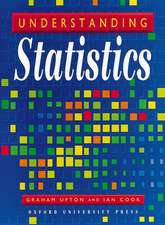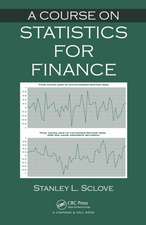Empirical Research in Software Engineering: Concepts, Analysis, and Applications
Autor Ruchika Malhotraen Limba Engleză Hardback – 5 oct 2015
Written by a leading researcher in empirical software engineering, the book describes the necessary steps to perform replicated and empirical research. It explains how to plan and design experiments, conduct systematic reviews and case studies, and analyze the results produced by the empirical studies.
The book balances empirical research concepts with exercises, examples, and real-life case studies, making it suitable for a course on empirical software engineering. The author discusses the process of developing predictive models, such as defect prediction and change prediction, on data collected from source code repositories. She also covers the application of machine learning techniques in empirical software engineering, includes guidelines for publishing and reporting results, and presents popular software tools for carrying out empirical studies.
Preț: 692.32 lei
Preț vechi: 865.40 lei
-20% Nou
Puncte Express: 1038
Preț estimativ în valută:
132.49€ • 137.81$ • 109.38£
132.49€ • 137.81$ • 109.38£
Carte disponibilă
Livrare economică 24 martie-07 aprilie
Livrare express 08-14 martie pentru 50.06 lei
Preluare comenzi: 021 569.72.76
Specificații
ISBN-13: 9781498719728
ISBN-10: 1498719724
Pagini: 498
Ilustrații: 140
Dimensiuni: 178 x 254 x 33 mm
Greutate: 1.09 kg
Ediția:1
Editura: CRC Press
Colecția Chapman and Hall/CRC
ISBN-10: 1498719724
Pagini: 498
Ilustrații: 140
Dimensiuni: 178 x 254 x 33 mm
Greutate: 1.09 kg
Ediția:1
Editura: CRC Press
Colecția Chapman and Hall/CRC
Cuprins
Introduction. Systematic Literature Reviews. Software Metrics. Experimental Design. Mining Data from Software Repositories. Data Analysis and Statistical Testing. Model Development and Interpretation. Validity Threats. Reporting Results. Mining Unstructured Data. Demonstrating Empirical Procedures. Tools for Analyzing Data. Appendix. References. Index.
Notă biografică
Ruchika Malhotra is an assistant professor in the Department of Software Engineering at Delhi Technological University (formerly Delhi College of Engineering). She was awarded the prestigious UGC Raman Fellowship for pursuing post-doctoral research in the Department of Computer and Information Science at Indiana University–Purdue University. She received her master’s and doctorate degrees in software engineering from the University School of Information Technology of Guru Gobind Singh Indraprastha University. She received the IBM Best Faculty Award in 2013 and has published more than 100 research papers in international journals and conferences. Her research interests include software testing, improving software quality, statistical and adaptive prediction models, software metrics, neural nets modeling, and the definition and validation of software metrics.
Recenzii
"In this book, Dr. Malhotra uses her breadth of software engineering experience and expertise to give the reader coverage of many aspects of empirical software engineering. She covers the essential techniques and concepts needed for a researcher to get started on empirical software engineering research, including metrics, experimental design, analysis and statistical techniques, threats to the validity of any research findings, and methods and tools for empirical software engineering research. … The book provides the reader with an introduction and overview of the field and is also backed by references to the literature, allowing the interested reader to follow up on the methods, tools, and concepts described."
—From the Foreword by Mark Harman, University College London
—From the Foreword by Mark Harman, University College London
Descriere
Written by a leading researcher in empirical software engineering, this book shows how to implement empirical research processes, procedures, and practices in software engineering. It describes the necessary steps to perform replicated and empirical research. It explains how to plan and design experiments, conduct systematic reviews and case studies, and analyze the results produced by the empirical studies. The book balances empirical research concepts with exercises, examples, and real-life case studies, making it suitable for a course on empirical software engineering.






















